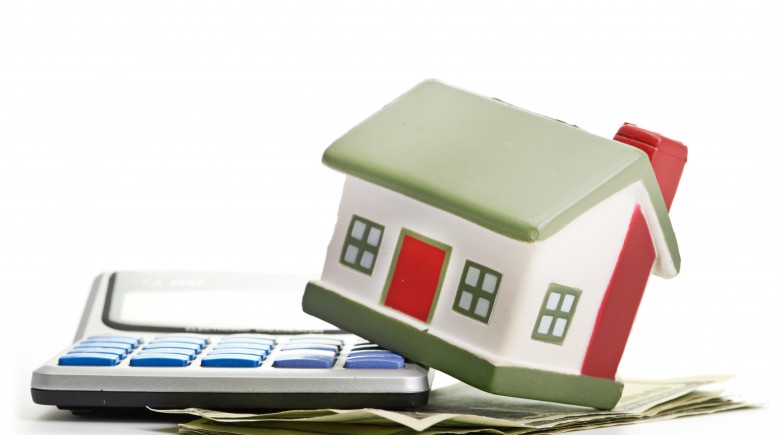One of the biggest mistakes you can make as a homebuyer is taking out a loan and not comparing mortgage interest rates. But like many others, you may focus entirely on the purchase price of the house and ignore other costs. Don’t beat yourself up – you’re not alone. Many people lose sight of the fact that interest has a role in monthly payments. However, if you’re trying to estimate your home loan payment and determine affordability, this is need-to-know information.
Of course, only a bank can accurately estimate your interest rate on a 30 year mortgage loan, which isn’t a problem if you’re ready to go through the mortgage loan process. But if you’re in the beginning stages and not ready to have a lender pull your credit report, there are ways to estimate mortgage interest yourself.
Order Your Own Credit Score
Checking your own credit does not harm your score, thus you can order your report and score as often as you like. And if you’re considering buying a house, this is strongly recommended. Knowing your credit not only provides clues as to whether you will meet a lender’s requirements, knowing your personal score can help you estimate your mortgage interest rate.
Mortgage rates vary, and the rate you pay depends largely on your credit score and credit habits. Go to Annualcreditreport.com and order all three of your credit scores from the bureaus (Experian, TransUnion and Equifax). It’s best to order all three scores because when determining your interest rate, lenders use the average of your scores or the middle score.
Make sure you pull credit scores for each person applying for the loan. If you and your spouse (or another person) applies for a mortgage loan together, the lender will use the average of your middle scores. For example, if your middle score is 800 and your spouse’s middle score is 640, the lender will base your mortgage rate on a 720 credit score.
Research Current Interest Rates
Mortgage rates can change at the drop of a dime. But once you know your credit score, it’s fairly simple to estimate your rate on a 30 year loan. If you visit Myfico.com, there is an option to see up-to-date mortgage rates. Based on your score, you can find average rates for a 30-year mortgage and other types of mortgage terms.
Let’s say you have a 710 credit score. As of August 2, 2013, you could potentially qualify for a home loan with a 4.3% APR. But if your credit score is between 639 and 620, the APR jumps to 5.6%.
Understand that any online interest rate information is a rough estimate. Credit scores play a big role in your mortgage interest rate, but lenders take other factors into consideration as well. For example, a high debt-to-income ratio often results in a higher mortgage rate, even if you have a good credit score. Putting down a larger down payment can help you negotiate a better rate. And if you’re looking to avoid private mortgage insurance, your lender may waive this fee, but compensate by charging a higher mortgage rate.
One of the biggest mistakes you can make as a homebuyer is taking out a loan and not comparing mortgage interest rates. But like many others, you may focus entirely on the purchase price of the house and ignore other costs. Don’t beat yourself up – you’re not alone. Many people lose sight of the fact that interest has a role in monthly payments. However, if you’re trying to estimate your home loan payment and determine affordability, this is need-to-know information.
Of course, only a bank can accurately estimate your interest rate on a 30 year mortgage loan, which isn’t a problem if you’re ready to go through the mortgage loan process. But if you’re in the beginning stages and not ready to have a lender pull your credit report, there are ways to estimate mortgage interest yourself.
Order Your Own Credit Score
Checking your own credit does not harm your score, thus you can order your report and score as often as you like. And if you’re considering buying a house, this is strongly recommended. Knowing your credit not only provides clues as to whether you will meet a lender’s requirements, knowing your personal score can help you estimate your mortgage interest rate.
Mortgage rates vary, and the rate you pay depends largely on your credit score and credit habits. Go to Annualcreditreport.com and order all three of your credit scores from the bureaus (Experian, TransUnion and Equifax). It’s best to order all three scores because when determining your interest rate, lenders use the average of your scores or the middle score.
Make sure you pull credit scores for each person applying for the loan. If you and your spouse (or another person) applies for a mortgage loan together, the lender will use the average of your middle scores. For example, if your middle score is 800 and your spouse’s middle score is 640, the lender will base your mortgage rate on a 720 credit score.
Research Current Interest Rates
Mortgage rates can change at the drop of a dime. But once you know your credit score, it’s fairly simple to estimate your rate on a 30 year loan. If you visit Myfico.com, there is an option to see up-to-date mortgage rates. Based on your score, you can find average rates for a 30-year mortgage and other types of mortgage terms.
Let’s say you have a 710 credit score. As of August 2, 2013, you could potentially qualify for a home loan with a 4.3% APR. But if your credit score is between 639 and 620, the APR jumps to 5.6%.
Understand that any online interest rate information is a rough estimate. Credit scores play a big role in your mortgage interest rate, but lenders take other factors into consideration as well. For example, a high debt-to-income ratio often results in a higher mortgage rate, even if you have a good credit score. Putting down a larger down payment can help you negotiate a better rate. And if you’re looking to avoid private mortgage insurance, your lender may waive this fee, but compensate by charging a higher mortgage rate.






